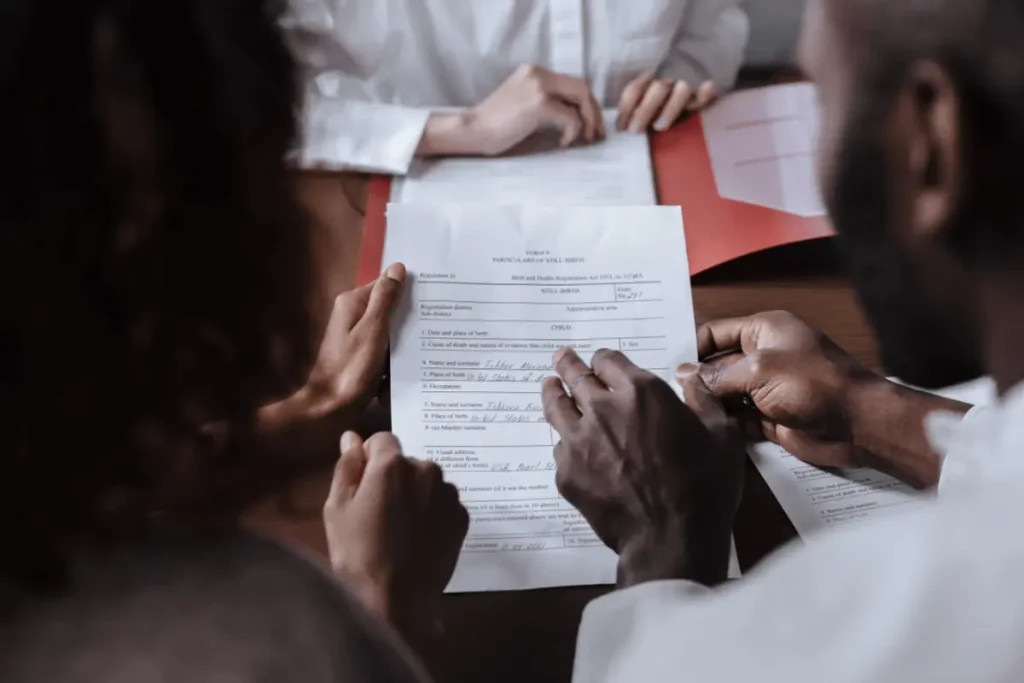
Understanding the Affidavit of Support (Form i-864): Financial Requirements for Sponsors
August 21, 2025
Fiancé Visa vs. Spouse Visa: Which Marriage Visa Is Right for Your Relationship?
September 22, 2025
Understanding the Affidavit of Support (Form i-864): Financial Requirements for Sponsors
August 21, 2025
Fiancé Visa vs. Spouse Visa: Which Marriage Visa Is Right for Your Relationship?
September 22, 2025
Important USCIS Policy Change: Stricter Rules for Marriage-Based Green Card Applicants as of August 2025
If you're applying for a marriage-based green card, you need to know about important policy changes that took effect August 1, 2025.
USCIS has updated their procedures with new form requirements, stricter filing rules, and revised processing standards that fundamentally change how applications are reviewed and decided.
Under the new rules, USCIS can deny applications without first requesting additional evidence—something they routinely did before. When applications are denied, they can also immediately place applicants into removal proceedings. These changes apply to both new applications and cases that were already pending.
These updates mean that thorough preparation and complete documentation are more critical than ever.
Getting your application right the first time has become essential, as opportunities to address issues after filing may not be available.
In this post, we'll walk you through exactly what changed, explain why USCIS made these updates, and outline what these changes mean for your case. Most importantly, we'll share practical steps you can take to ensure your application is complete and positioned for success under the current rules.
Contact Strang Immigration today for a consultation to ensure your case meets the new requirements and is properly prepared from the start.

What Has Changed in USCIS Policy?
The August 2025 policy changes represent a significant shift in how USCIS processes marriage-based immigration cases. Here's what you need to know:
Mandatory In-Person Interviews
Every marriage-based green card applicant must now attend an in-person interview. Previously, USCIS waived interviews for many applicants who submitted strong documentation. Under the current policy, you and your spouse will be questioned about your relationship, living situation, and future plans.
Enhanced Documentation Requirements
USCIS now requires more comprehensive proof that your marriage is genuine. Officers review evidence more thoroughly, looking for consistency and completeness in your submission. The documentation standards have become more demanding, and incomplete applications may face denial.
Changes to Review Process
One of the most significant changes involves Requests for Evidence (RFEs) and Notices of Intent to Deny (NOIDs).
An RFE allows you to submit additional documentation when your initial application needs more evidence. A NOID notifies you that USCIS intends to deny your case and provides an opportunity to respond.
Under the new rules, USCIS officers have the authority to deny applications without issuing these notices. This means your case can be decided based solely on your initial submission, without the opportunity to provide additional information.
Notice to Appear Issuance
When USCIS denies a marriage-based green card application, they can issue a Notice to Appear (NTA). An NTA places you in removal proceedings before an immigration judge. This can happen regardless of how long you've lived in the United States or your family connections here.
Updated Forms and Filing Requirements
USCIS has also updated key forms used in the marriage-based green card process:
- Form I-485 (Adjustment of Status): Only the 01/20/25 edition is accepted as of April 3, 2025
- Form I-129F (Fiancé Visa): Only the 01/20/25 edition is accepted as of May 1, 2025
- Form I-130 (Petition for Alien Relative): The current 04/01/24 edition includes explicit marriage fraud warnings and consular processing requirements
Additionally, USCIS has implemented stricter filing rules:
- Each form must be paid separately — combined payments can result in package rejection
- Applicants must clearly indicate whether they're pursuing adjustment of status or consular processing
- Form I-693 (medical examination) must be included at the time of filing in most cases
Using outdated form editions or mismatched pages can lead to immediate rejection, making attention to detail more important than ever.
These changes apply to all applications filed on or after August 1, 2025, and to cases that were already pending on that date.

Why USCIS Made These Changes
USCIS cites three primary reasons for implementing these updated policies:
Reducing Marriage Fraud
The agency aims to better identify marriages entered solely for immigration benefits. By increasing scrutiny and requiring interviews for all applicants, USCIS believes it can more effectively distinguish genuine relationships from fraudulent ones.
Addressing the Case Backlog
Millions of family-based immigration cases currently await processing. USCIS hopes that more thorough initial reviews will reduce the number of cases requiring multiple rounds of evidence requests and appeals, ultimately moving cases through the system more efficiently.
Enhanced Security Screening
The new policies allow officers to conduct more comprehensive background checks and examine evidence more carefully. This includes reviewing joint financial accounts, photographs spanning your relationship, affidavits from friends and family, and your complete immigration history.
While these objectives address legitimate concerns, the implementation creates additional challenges for couples navigating an already complex system.

Risks and Consequences for Applicants
The updated rules create several important considerations that didn't exist before August 2025:
Higher Standards for Initial Applications
Immigration attorneys report that cases now require more complete documentation from the outset. Applications that might have received an RFE under the previous system may now face denial if the initial submission doesn't meet current standards.
Limited Opportunity for Additional Evidence
When USCIS denies an application without issuing an RFE or NOID, you lose the opportunity to address their concerns before the denial becomes final. This can lead to appeals or removal proceedings that are more complex and time-consuming.
Changes in Legal Status Protection
If you're out of legal status when USCIS denies your application, removal proceedings can begin immediately. The previous system often provided more time to gather additional evidence or file motions to reopen cases.
Extended Processing Times
The mandatory interviews and enhanced documentation review have increased processing times significantly. Cases that previously took months may now take a year or longer, during which your legal status remains in process.

Increased Need for Professional Guidance
Many couples find they need legal representation to navigate the updated requirements effectively. This represents an additional consideration for families planning their immigration process and budget.
Ready to protect your marriage-based green card application under the new USCIS rules?
Contact Strang Immigration Law today for a comprehensive consultation.
Our experienced attorneys will evaluate your case, ensure complete documentation, and guide you through every step of the process. Don't let the new policies put your future at risk — get the professional legal support you need to succeed.
ABOUT US

We are dedicated to protecting your legal rights at every stage of the process. Discover for yourself how our immigration attorneys can help you obtain a successful outcome



